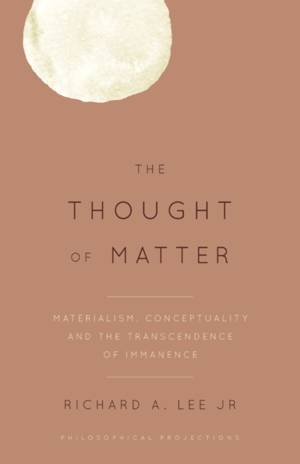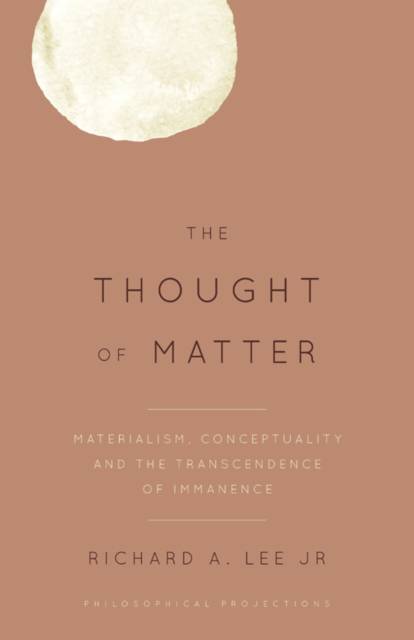
Bedankt voor het vertrouwen het afgelopen jaar! Om jou te bedanken bieden we GRATIS verzending (in België) aan op alles gedurende de hele maand januari.
- Afhalen na 1 uur in een winkel met voorraad
- In januari gratis thuislevering in België
- Ruim aanbod met 7 miljoen producten
Bedankt voor het vertrouwen het afgelopen jaar! Om jou te bedanken bieden we GRATIS verzending (in België) aan op alles gedurende de hele maand januari.
- Afhalen na 1 uur in een winkel met voorraad
- In januari gratis thuislevering in België
- Ruim aanbod met 7 miljoen producten
Zoeken
The Thought of Matter
Materialism, Conceptuality and the Transcendence of Immanence
Richard A Lee Jr
€ 101,95
+ 203 punten
Uitvoering
Omschrijving
Discussions of materialism have exploded in recent years. From the speculative realism/materialism of Quentin Meillassoux to the New Materialism of many modern Marxisms, the interest in a return to or rehabilitation of materialism is on the rise. What is not analyzed in many of these discussions, however, is a trenchant methodological and metaphysical problem lying at the basis of any philosophical materialism: if matter is simply that which is other than thought, then how can it be thought without drawing it away from its materiality? On the other hand, if one assumes a direct access to matter, to this other, what are the conditions of that access? Are they material conditions or cognitive (thought) conditions? Does what would present itself immediately present, at the same time, the conditions that allow it to be presented? If not, then we are closer to a theology of matter and further from a philosophical materialism. The Thought of Matter investigates this metaphysical and methodological problem through Aristotle, Marx, Adorno, Althusser, Duns Scotus, Hobbes, and Benjamin in order to show that a philosophical materialism necessarily requires the concepts and tools of thought in order to allow the otherness of matter to emerge in its own materiality.
Specificaties
Betrokkenen
- Auteur(s):
- Uitgeverij:
Inhoud
- Aantal bladzijden:
- 160
- Taal:
- Engels
- Reeks:
Eigenschappen
- Productcode (EAN):
- 9781783486434
- Verschijningsdatum:
- 11/12/2015
- Uitvoering:
- Paperback
- Formaat:
- Trade paperback (VS)
- Afmetingen:
- 150 mm x 229 mm
- Gewicht:
- 362 g

Alleen bij Standaard Boekhandel
+ 203 punten op je klantenkaart van Standaard Boekhandel
Beoordelingen
We publiceren alleen reviews die voldoen aan de voorwaarden voor reviews. Bekijk onze voorwaarden voor reviews.









